Search Results
Showing results 1 to 20 of 21

Formulas Poker
Source Institutions
In this adapted version of poker, learners practice writing chemical formulas by playing this chemistry card game.

Building Bingo
Source Institutions
In this on site "field trip" activity (located on pages 6-9 of PDF), learners get hands-on experience identifying building materials by playing "Building Bingo".
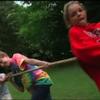
Tug-of-War
Source Institutions
This activity (on page 2 of the PDF under SciGirls Activity: Tug O' War) is a full inquiry investigation into tug-of-war physics. Groups of learners will test two tug-of-war strategies.

Polyatomic Ion Bingo
Source Institutions
This activity was designed for blind learners, but all types of learners can play this game to learn about the major polyatomic ions (an ion that consists of two different elements).
Properties of Metals
Source Institutions
In this activity, learners explore the properties of metals at four stations. The stations include A) Magnetism and Breakfast Cereal; B) Conductivity of Metals; C) Alloys; and D) Metal Plating.

The Carbon Cycle: How It Works
Source Institutions
In this game, learners walk through an imaginary Carbon Cycle and explore the ways in which carbon is stored in reservoirs and the processes that transport the carbon atom from one location to another
Cycles in the Cards
Source Institutions
In this "game," learners explore and relate the evolution of stars to a Navajo creation story. The story is written on a series of cards, which are laid on a table as the story is told.

What's So Special about Water: Surface Tension
Source Institutions
In this three-part activity, learners play a game and conduct two simple experiments to explore water and surface tension. Learners will have fun discovering how water "sticks" together.

The Carbon Cycle Game
Source Institutions
In this activity, learners take on the role of a carbon atom and record which reservoirs in the carbon cycle they visit.
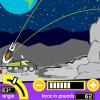
Planetary Rescue Squad
Source Institutions
This is an online Flash game where learners can experiment with ballistics and how to compensate for the varying levels of gravity found on the planets of our Solar System.

I Spy Nano!
Source Institutions
In this game, learners try to find nano-related objects on a game board. Learners investigate the different ways nano is in the world around us.

Exploring Fabrication: Self-Assembly
Source Institutions
In this activity, learners participate in several full-body interactive games to model the process of self-assembly in nature and nanotechnology.

Zoo Calendar
Source Institutions
Use the Zoo Calendar (page 1 of PDF) to involve learners in interdisciplinary, whole language, and writing activities about ecological concepts.
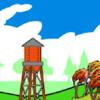
The Great Balloon Race
Source Institutions
In this online Flash game, learners take to the skies in a hot air balloon and are challenged to beat other balloonists' times to the finish line without crashing.
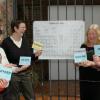
A Universe Without Supernovae
Source Institutions
This fun and simple hands-on astronomy activity illustrates the value of supernovae in the universe.
What's in the Bag?
Source Institutions
In this activity, young learners use their sense of touch rather than sight to identify a mystery object in a bag. Learners take turns acting as "peekers" and "sensers" throughout the game.
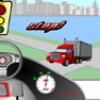
Stop: Practice Stopping at Vehicle Intersections
Source Institutions
This is an online game about stopping distance. Learners choose one of three vehicles and one of three speeds.

Self-Assembly Game
Source Institutions
This is a quick game about self-assembly (page 2 of PDF under Self-Assembly Activity). Like the molecules of DNA, learners will self-assemble into a pattern by following a simple set of rules.

Molecule Match
Source Institutions
In this activity, learners will use their nose to sniff out hidden scents using extracts and cotton balls. Activity includes materials list, game instructions, STEM connections and more.
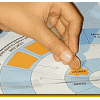
Light Quest
Source Institutions
Learners test their "light-smarts" by playing a game called "Light Quest!" The game board represents an atom and each player represents an electron that has been bumped into the atom's outer unstable
